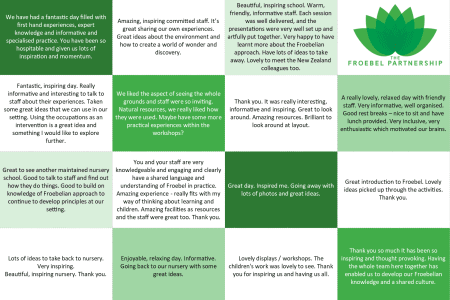Here you will find details of the training we are currently offering as well as some recorded sessions for you to use as you wish
Use these links to jump to content:
Froebel’s Occupations
This series of presentations by educators from Guildford Nursery School are offered as a means of sharing practice. Each one is delivered by two educators and is full of practical ideas that listeners can employ immediately in their setting or school.
Each course or presentation is based on one of Froebel’s Occupations. Froebel’s Occupations are practical, real-life experiences which promote and enable creativity, communication, the development of physical and problem-solving skills. The Occupations are enjoyable, engaging and meaningful for children of all ages. They largely involve the use of natural materials or man-made resources made from natural materials.
Learn how to develop these experiences with your children. Learn about the endless possibilities and enormous benefits for all children.
Cooking the Froebelian way with children in the Early Years
“Learning should be connected to children’s own lives and experienced as a meaningful whole so that children can connect new ideas to what they already know.” (Tovey, 2020, p.4)
This presentation considers the importance, relevance and benefits of cooking with young children. It includes Froebelian practice prompts on equipment, recipes, managing risk and many practical ideas. You will gain in confidence and knowledge to cook with young children including those with additional needs.
“As a universal feature of daily living, ‘food preparation’ crosses all cultures and carries the potential for uniting families, friends, strangers and cultures in promotion of shared learning at the deepest level.” (McCormick, 2012, p.153 in ‘Early Childhood Practice: Froebel today’ ed. Bruce)
Block play, a world of open ended possibilities
“As an open-ended resource, block play lends itself to any curriculum based on holistic child development.” (Whinnett, 2020, P5)
This presentation will give listeners an appreciation of block play and the endless opportunities it offers children. It explores the stages of block play and the significance of the adult role. It includes Froebelian practice prompts on how to embed block play in your setting.
So much more than a needle: Sewing, weaving and threading in the Early Years
“To learn a thing in life and through doing is much more developing, cultivating and strengthening than to learn it merely through the verbal communication of ideas.” (Froebel)
This presentation considers the importance and relevance of sewing, weaving, and threading in early childhood development. You will hear and see practical examples of how to incorporate them into the classroom. Learn about the benefits of using recycled materials and promoting sustainability. Watch to learn how sewing, weaving and threading can enhance fine motor skills, creativity, and problem-solving abilities in young children.
Why clay? Exploring and working with clay in the Early Years
“The importance of direct experience and the way it makes possible the development of real learning cannot be over-emphasized.” (Bruce 2004: 126)
This presentation considers using clay with children aged 2-4 years and how clay is such a valuable resource for children’s development and learning. Learn about the history of clay, its benefits for children’s language and motor skills, and loads of practical ideas. There are also Froebelian practice prompts on setting up a clay area and the importance of a proper clean up!
The wonder of woodwork in the Early Years
“A Froebelian environment provides a rich array of genuine ‘real world’ experiences which offer exciting opportunities for learning and which engage children’s interests.” (Tovey, 2017, p.37)
This presentation considers the plentiful benefits of woodwork with children aged 3-5 years. It includes Froebelian practice prompts on how to start, how to manage the risks and experiences to offer the children. You will be reassured that you too can offer woodwork to all young children including those with additional needs.
Bespoke staff training days
The staff at Guildford Nursery School delivered a bespoke staff training day to colleagues at Surbiton Hill Nursery on 5th September 2023.
If this is something that would be of interest to your school or setting, please contact us on: [email protected]
Webinars and short films
Block play at Guildford Nursery School
The Benefits of Gardening with Children webinar
Our first conference:
Using Froebel’s approach in today’s Early Years Curriculum
The Froebel Partnership’s first biennial conference ‘Using Froebel’s approach in today’s Early Years Curriculum’ took place on Friday, 3rd May 2024. Keynote speakers included Professors Tina Bruce and Chris Pascal and Dr Stella Louis. Delegates also attended two workshops on Froebel’s occupations.
Below are recordings of the three keynote speeches.
Time, Temporality and Transformations in the Natural World
Chris Pascal shares ‘a tiny slice’ of the work of The Froebel Partnership. She explores the project’s work on engaging with nature (which began during COVID) and incorporates Alison Clark’s work on Slow Pedagogy. She discusses the tool the Partnership has created to help them analyse the data from the 3 year project. The tool named ‘Reflection with Guidance’ incorporates 4 lenses to analyse the data through. Within her keynote, Chris Pascal discusses political practice – “you are shaping lives – that is what politics should be about” urging educators to consider their roles within communities and society.
The Central Important of Play in the Early Years Curriculum
Tina Bruce discusses the central importance of play alongside Guildford Nursery School’s headteacher, Sally Cave. Their work together explores play and what it means to guide play as an educator. Tina Bruce shares the Froebelian ideas of unity and linking this to play and children’s self-awareness. She explains the act of ‘observe, support and extend’ which is what we do when we teach – relying on the educator’s knowledge of each child and their development.
The Role of the Observer as Participant and Interactionist
Stella Louis holistically discusses childhood, incorporating her work on movement, sharing her ideas on play and the network for learning and urging delegates to consider our own bias – do we look for children’s good intentions? Are we providing children time and space to develop? Telling us “we wouldn’t rush the stages of a caterpillar; we shouldn’t rush the stages of child development”.




